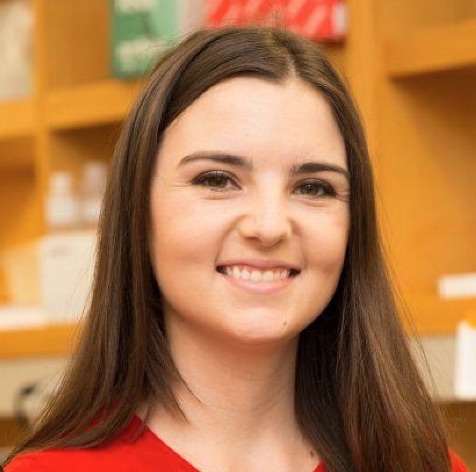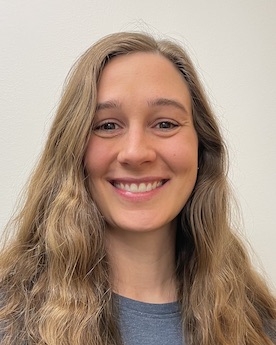
McGill-Montreal General Hospital Research Institute
Appointed in 1961
Read more
McGill-Montreal General Hospital Research Institute
Appointed in 1961

University of Cambridge, England
Appointed in 1960
Read more
University of Cambridge, England
Appointed in 1960


Stanford University
Appointed in 1972

MRC Center, University Medical School, England
Appointed in 1976
Read more
MRC Center, University Medical School, England
Appointed in 1976

Whitehead Institute for Biomedical Research
Appointed in 1983
Read more
Whitehead Institute for Biomedical Research
Appointed in 1983

Massachusetts Institute of Technology
Appointed in 1972
Read more
Massachusetts Institute of Technology
Appointed in 1972

National Institute of Allergy and Infectious Diseases
Appointed in 2023
Read more
National Institute of Allergy and Infectious Diseases
Appointed in 2023
In disease-causing organisms, hybridization allows for the transfer of traits such as virulence and drug resistance. Dr. Mabel Tettey will investigate how hybridization impacts African trypanosomiasis outbreaks caused by the parasite Trypanosoma brucei. Dr. Tettey will assess the degree of hybridization occurring in African trypanosome endemic areas, explore the impact of hybridization on virulence, and identify the key molecules involved in this process. She will conduct these experiments in Dr. Michael Grigg’s lab at the National Institute of Allergy and Infectious Diseases. These studies may enable the development of effective disease control strategies against African trypanosomes.
As a graduate student in Dr. Keith Matthews’ lab at the University of Edinburgh, Tettey examined the function of released peptidases in the transmission of African trypanosomes. Specifically, Dr. Tettey identified the genes that dominate quorum sensing signal in African trypanosomes. With her extensive background in trypanosome biology, Dr. Tettey will now examine the role of hybridization in trypanosome virulence.

University of California, Berkeley
Appointed in 2014
Read more
University of California, Berkeley
Appointed in 2014
Cellular memory can be defined as the ability of a cell to transmit all its identifying functions to daughter cells during cell division. This ability to ‘remember’ identity is crucial to the development of multicellular organisms, as evidenced when cells lose their identity and degenerate or become cancerous. Conversely, our ability to alter cell state, such as the generation of induced pluripotent stem (iPS) cells from differentiated cells, has become a promising therapeutic tool. Therefore, understanding how cells establish, maintain, and change identity will further our understanding of processes central to cellular development, disease progression, and therapy production. One mechanism for cellular memory is the ability to re-establish the transcriptional program following mitosis, which may function through bookmarking, the process of DNA-binding factors marking genes on condensed mitotic chromosomes to facilitate gene expression following mitosis. The main objective of this proposal is to analyze the mechanisms of bookmarking. I outline three independent approaches to characterize quantitatively the mechanisms of bookmarking. Using these approaches, I will test the hypothesis that histone variants and pluripotency factors function as bookmarkers to maintain the stem cell state. Lastly, I will perform an unbiased screen to identify putative bookmarking factors specific to embryonic stem cells.

Whitehead Institute for Biomedical Research
Appointed in 2021
Read more
Whitehead Institute for Biomedical Research
Appointed in 2021
Cancer affects men and women differently. For example, glioblastoma, the most aggressive form of brain cancer, has a male-biased incidence rate and poorer response to standard treatments in men versus women. My research investigates the genetic and molecular basis of sex differences in glioblastoma from the perspective of microglia, the resident immune cells of the brain. Microglia are a major player in the brain tumor microenvironment and promote tumor growth and metastasis. Using XX and XY human microglia isolated from healthy brain regions and brain tumors, I am identifying sex-biased genes and biological pathways that are responsible for establishing sexually dimorphic brain tumor microenvironments. Further, I am testing how possessing an XX or XY sex chromosome complement drives the observed genome-wide sex-biased gene expression patterns in microglia, in particular, through X-linked genes that aberrantly escape X chromosome inactivation or homologous X-Y gene pairs with imbalanced expression or function. I anticipate that my research will lay the groundwork for more effective and sex-specific treatments for glioblastoma.


Rockefeller University
Appointed in 1948

Massachusetts Institute of Technology
Appointed in 1989
Read more
Massachusetts Institute of Technology
Appointed in 1989

Carnegie Institute for Science
Appointed in 1990
Read more
Carnegie Institute for Science
Appointed in 1990


Stanford University
Appointed in 1972

University of Uppsala, Sweden
Appointed in 1972
Read more
University of Uppsala, Sweden
Appointed in 1972

National Institutes of Health
Appointed in 1973
Read more
National Institutes of Health
Appointed in 1973


New York University
Appointed in 1956


University of Washington
Appointed in 1993

California Institute of Technology
Appointed in 1990
Read more
California Institute of Technology
Appointed in 1990

Massachusetts Institute of Technology
Appointed in 2022
Read more
Massachusetts Institute of Technology
Appointed in 2022
Pancreatic cancer represents 3% of all new cancer cases in the United States, yet it has the worst 5-year survival rate of all cancer types. While many cancer types display durable responses to cancer immunotherapy, which harnesses the cytotoxic activity of the immune system to treat malignancies, immunotherapy has largely failed to treat pancreatic ductal adenocarcinoma (PDAC). The complex tumor microenvironment of PDAC likely underlies the refractory response of PDAC to immunotherapy, including immune checkpoint blockade (ICB). One example of a known mechanism that aids immune evasion by PDAC is the presence of desmoplastic stroma that hinders the infiltration of cytotoxic T cells. In addition to exclusion of immune infiltrate, the cytotoxic T cells that are present within the microenvironment are dysfunctional. Nutrient availability within the tumor environment likely impacts the function of cytotoxic T cells and research in immunometabolism is of growing interest. Understanding cell-specific metabolic changes within GEMMs has been hindered by a lack of mouse models that properly recapitulate the tumor microenvironment and lack of tools able to properly isolate cells in a way that preserves the integrity of the metabolites. My project will use a GEMM of PDAC, congenic markers, and cancer cell-specific surface tags in order to rapidly purify and perform metabolomics of both cancer cells and T-cells. Using this technique, I hope to identify metabolic pathways that are hindering immune cell proliferation and cytotoxic capabilities to reinvigorate the immune microenvironment for tumor control and in response to ICB.

Karolinska Institutet, Stockholm
Appointed in 1973
Read more
Karolinska Institutet, Stockholm
Appointed in 1973

University Medical School, England
Appointed in 1962
Read more
University Medical School, England
Appointed in 1962

New York University
Appointed in 2012
Read more
New York University
Appointed in 2012

University of California, Berkeley
Appointed in 1991
Read more
University of California, Berkeley
Appointed in 1991


Yale University
Appointed in 1948


Yale University
Appointed in 1995

Boston Children's Hospital
Appointed in 2007
Read more
Boston Children's Hospital
Appointed in 2007

Salk Institute for Biological Studies
Appointed in 1972
Read more
Salk Institute for Biological Studies
Appointed in 1972


University of Chicago
Appointed in 1998

Sidney Farber Cancer Center
Appointed in 1977
Read more
Sidney Farber Cancer Center
Appointed in 1977


National Cancer Institute
Appointed in 1988

California Institute of Technology
Appointed in 1972
Read more
California Institute of Technology
Appointed in 1972

Memorial Sloan-Kettering Cancer Center
Appointed in 2018
Read more
Memorial Sloan-Kettering Cancer Center
Appointed in 2018
Hemizygous deletions of ribosomal protein genes (RPGs) are recurrently found across human cancers, yet their role in tumorigenesis is poorly understood. Here, I propose to systematically investigate the function of RPG hemizygosity in cancer, using hepatocellular carcinoma (HCC) as a model, by exploring two specific hypotheses. First, based on genomic data from HCC and other tumors, and emerging biochemical evidence for mRNA-specific translational control by individual RPs, I hypothesize that RPGs act as haploinsufficient tumor suppressor genes by selectively altering the translation of oncogenic and/or tumor-suppressive mRNAs. I will assess the contribution of RPG hemizygosity to tumor initiation, progression and maintenance, and analyze its impact on mRNA translation. Second, given that RPG deletions are almost invariably hemizygous and strongly associate with loss of the p53 tumor suppressor gene, I hypothesize that RPG hemizygosity renders cancer cells more vulnerable to perturbations of ribosome homeostasis. I will examine the effects of p53 restoration and further RPG depletion in RPG hemizygous cells, and perform a ribosome homeostasis-focused screen for RPG hemizygosity-specific tumor dependencies. Together, the proposed studies may provide an explanation for the striking patterns of RPG loss in human cancer, with potential broad implications for both fundamental biology and cancer treatment.

Whitehead Institute for Biomedical Research
Appointed in 2004
Read more
Whitehead Institute for Biomedical Research
Appointed in 2004

University of Colorado, Boulder
Appointed in 1995
Read more
University of Colorado, Boulder
Appointed in 1995


Massachusetts General Hospital
Appointed in 1977


Princeton University
Appointed in 1993

California Institute of Technology
Appointed in 2002
Read more
California Institute of Technology
Appointed in 2002


Cornell University
Appointed in 1966


Cornell University
Appointed in 1966


Columbia University
Appointed in 1992

University of Alberta, Canada
Appointed in 1980
Read more
University of Alberta, Canada
Appointed in 1980


Stanford University
Appointed in 1986


Johns Hopkins University
Appointed in 1972

Massachusetts Institute of Technology
Appointed in 2008
Read more
Massachusetts Institute of Technology
Appointed in 2008

Massachusetts Institute of Technology
Appointed in 1974
Read more
Massachusetts Institute of Technology
Appointed in 1974

Massachusetts Institute of Technology
Appointed in 1994
Read more
Massachusetts Institute of Technology
Appointed in 1994

Tufts University School of Medicine
Appointed in 2000
Read more
Tufts University School of Medicine
Appointed in 2000

University of Minnesota
Appointed in 2023
Read more
University of Minnesota
Appointed in 2023
The human pathogen Candida albicans’ genome varies substantially between clinical isolates, yet it is currently unknown how this variation affects infection. Since many genetic variants are located in gene regulatory sequences, Dr. Petra Vande Zande predicts that there is substantial divergence in gene-regulatory networks between different C. albicans isolates that modifies their fitness. Dr. Vande Zande will use gene expression data from different isolates to model gene regulatory networks and identify key differences that impact fitness. Vande Zande will conduct these experiments in Dr. Anna Selmecki’s lab at the University of Minnesota. This research will provide direct insight into genetic differences that impact C. albicans infections. It may also provide clues into other genetically diverse systems with differences in gene-regulatory networks, including human cancers.
As a graduate student in Dr. Patricia Wittkopp’s lab at the University of Michigan, Vande Zande studied gene expression in the context of adaptive evolution. In particular, Dr. Vande Zande discovered that mutations affecting a gene’s expression from a distance are more pleiotropic and more detrimental to fitness than mutations occurring proximally to the gene of interest. With her experience in the evolution of gene expression, Dr. Vande Zande is now interested in understanding divergence in gene-regulatory networks between different clinical isolates of yeast infections.


Harvard University
Appointed in 2003


Jackson Laboratory
Appointed in 2019
Diffuse glioma is the most common primary brain tumor in adults and is characterized by a poor prognosis and near universal recurrence following therapy. Given the poor response rate to the current standard-of-care, there is an active interest in applying immunotherapy to treat this disease. However, progress on this front has been limited, due in part to limited knowledge of how the immune system interacts with glioma to influence the tumor’s evolution. My work focuses on how cells of the immune system and accompanying microenvironment interact with malignant cells to influence the developmental trajectory of diffuse glioma. By integrating multi-omic bulk and single-cell datasets from pre- and post-treatment tumors, I aim to develop a better understanding of how gliomas evade the immune response and how the standard-of-care alters these processes. Results from this work can provide insights into how to shape disease progression and enable the sensitization of the gliomas to subsequent treatment approaches.

Massachusetts Institute of Technology
Appointed in 1971
Read more
Massachusetts Institute of Technology
Appointed in 1971